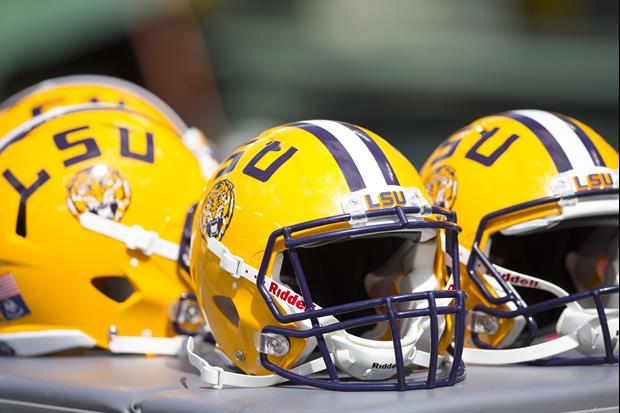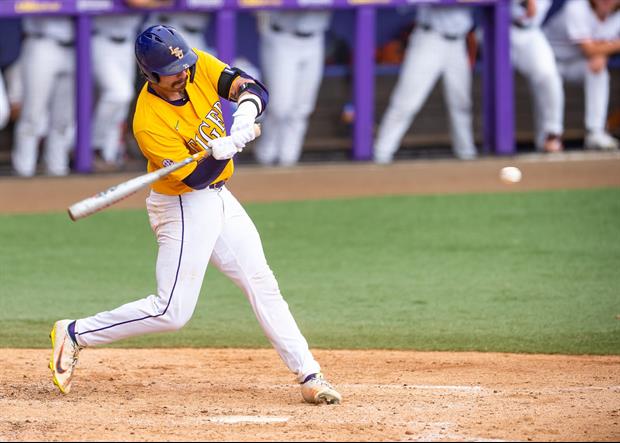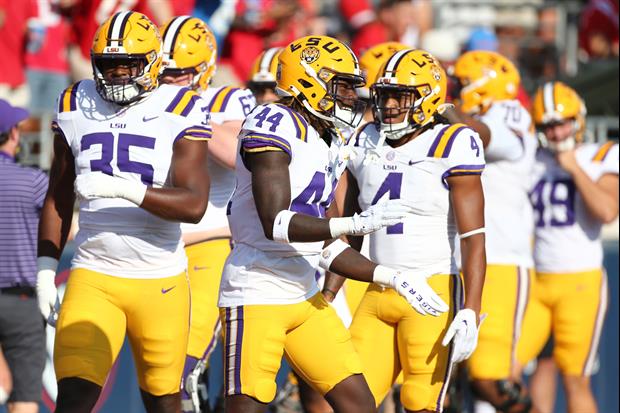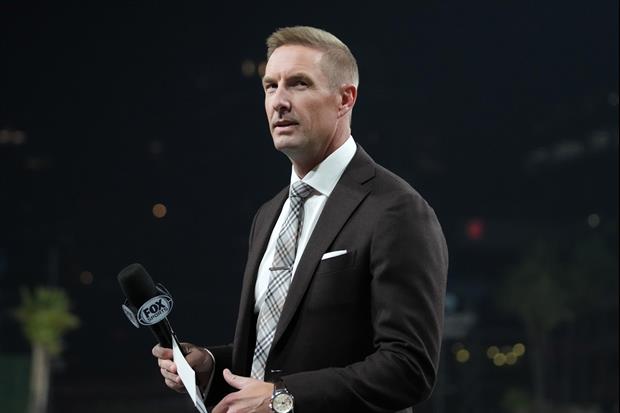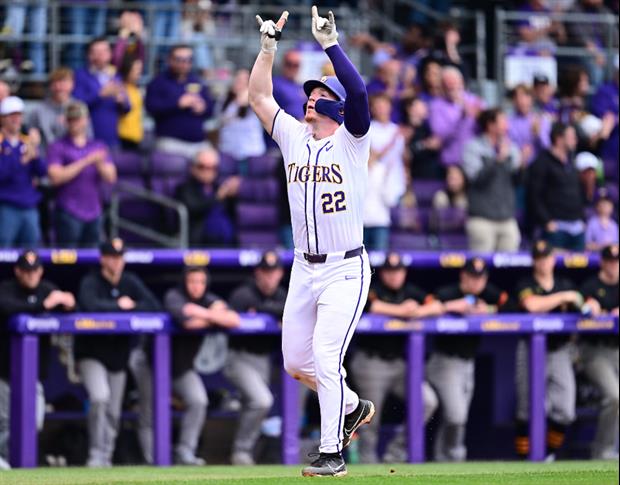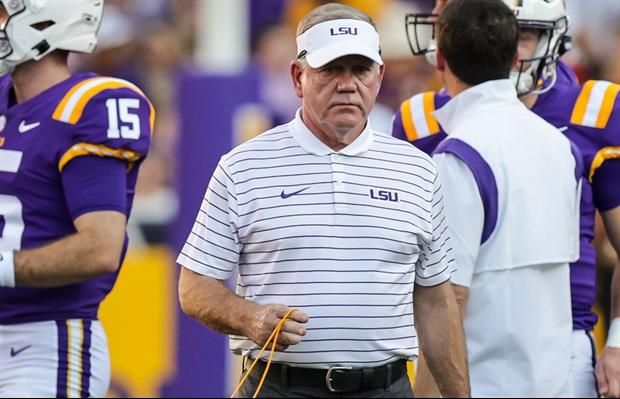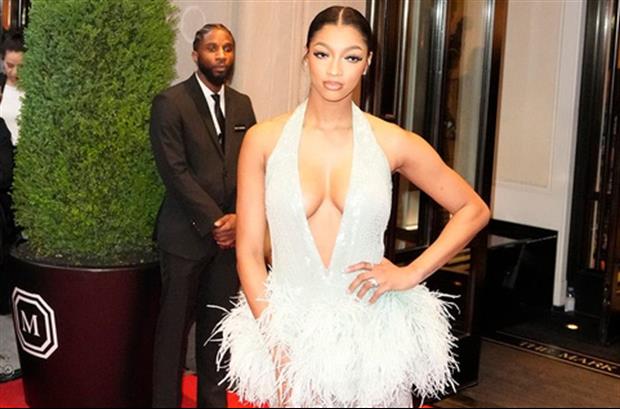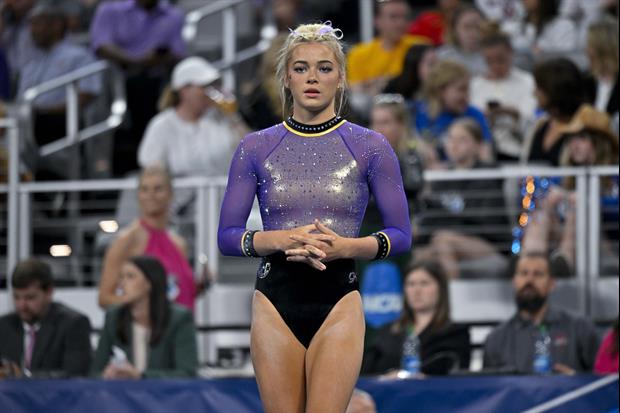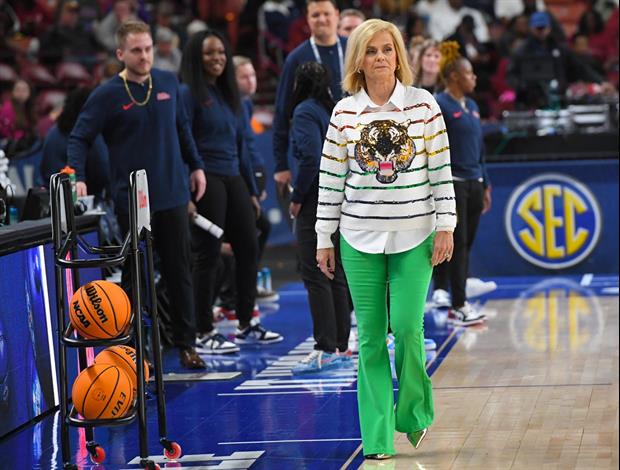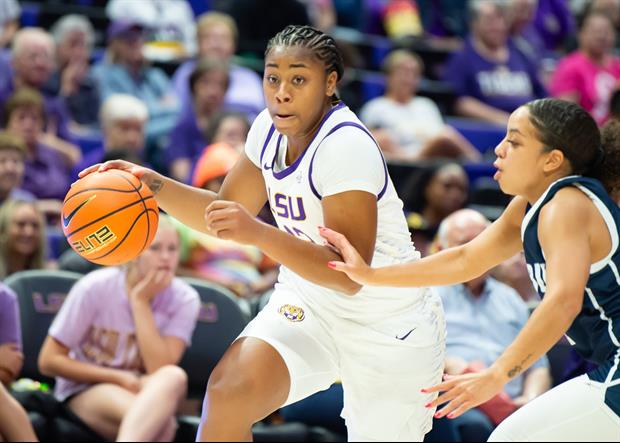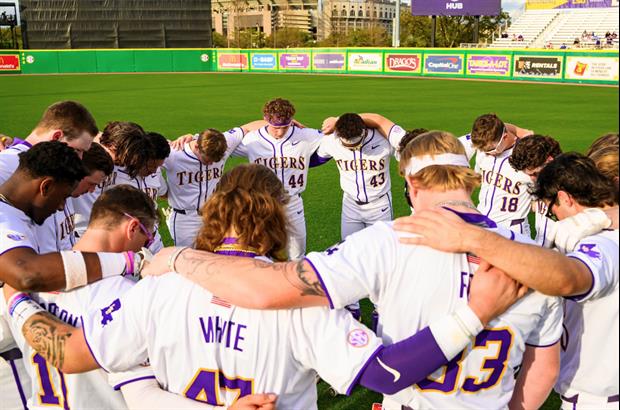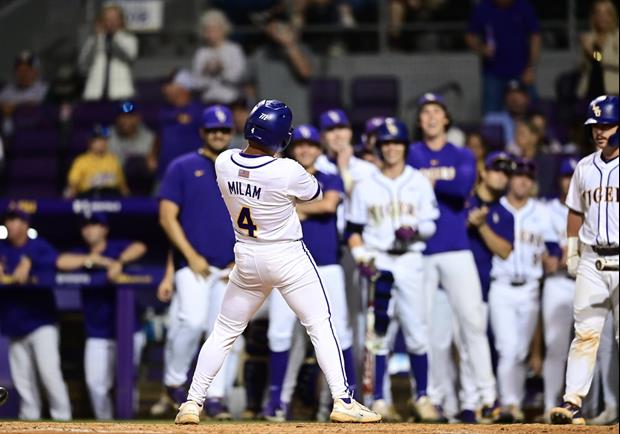- My Forums
- Tiger Rant
- LSU Recruiting
- SEC Rant
- Saints Talk
- Pelicans Talk
- More Sports Board
- Fantasy Sports
- Golf Board
- Soccer Board
- O-T Lounge
- Tech Board
- Home/Garden Board
- Outdoor Board
- Health/Fitness Board
- Movie/TV Board
- Book Board
- Music Board
- Political Talk
- Money Talk
- Fark Board
- Gaming Board
- Travel Board
- Food/Drink Board
- Ticket Exchange
- TD Help Board
Customize My Forums- View All Forums
- Topic Sort Options
- Trending Topics
- Recent Topics
- Active Topics
LSU Receives Penalties Regarding Recruiting Violations Tied To James Cregg
by Staff Reporter
September 22, 202218 Comments
Per NCAA:
The LSU football program violated recruiting rules when a former assistant coach and former assistant director of recruiting met separately with a prospect during the COVID-19 recruiting dead period and provided the prospect with impermissible recruiting inducements, according to a decision released by a Division I Committee on Infractions panel.
In March 2020, the NCAA Division I Council adopted emergency rules establishing a temporary recruiting dead period intended to protect the health and safety of prospects, student-athletes and university staff amid the COVID-19 pandemic. While the dead period prevented in-person recruiting contacts, including official and unofficial visits, it did not prevent prospects and their families from arranging informal visits to campus.
In September 2020, the mother of a football prospect arranged an informal visit to LSU's campus for 14 prospects. Football coaching staff were aware that a large group of prospects planned to visit campus, and the day before the prospects arrived, school compliance staff met with football staff — including the former assistant coach and former assistant director of recruiting — to review NCAA recruiting rules, emphasizing that staff could not have any in-person contact with recruits. The mother of one prospect planned to relocate to Baton Rouge if her son attended LSU and requested recommendations for potential neighborhoods to visit. The former assistant coach recommended several neighborhoods including his own, provided directions to his neighborhood, and arranged to greet the prospect and his family as they drove through the neighborhood, thus violating dead period rules. During that encounter with the prospect and his family, the assistant coach also provided the prospect with a bag of used LSU gear he had gathered from his house before he left, which violated NCAA rules prohibiting recruiting inducements.
The following weekend, that prospect and his family returned to LSU's campus on a previously planned trip. During this second visit, the former assistant director of recruiting picked up the prospect and his girlfriend from their hotel and drove them to the stadium for a tour, which violated NCAA rules for in-person contact during a dead period and also violated countable coaches rules because of the off-campus recruiting contact by a noncoaching staff member. The free transportation to campus also violated NCAA rules prohibiting recruiting inducements. Later that day or the following day, the former assistant director of recruiting returned to the prospect's hotel and delivered several items of used LSU gear for the prospect, again violating NCAA rules prohibiting recruiting inducements.
During that second trip to Baton Rouge, the prospect and his family again drove through the former assistant coach's neighborhood. The assistant coach was in contact with the prospect's mother as they approached and stood outside his home to meet the family for a brief conversation — another violation of NCAA rules for in-person contact during a dead period. Both the assistant coach and assistant recruiting director acknowledged that they knew their conduct was impermissible.
"Although the [committee] has encountered more egregious conduct in past cases, the violations in this case represent intentional misconduct that should be of concern to the membership," the panel said in its decision. "The COVID-19 recruiting dead period was intended to protect the health and safety of prospects, student-athletes and institutional staff. It also leveled the playing field for recruiting at a time when government-imposed COVID-19 restrictions varied across the country."
The panel also considered a Level III allegation that the former football head coach had violated NCAA recruiting rules when he had an off-campus recruiting contact with two prospects prior to the pandemic. Specifically, the former head coach was at a high school during a designated evaluation period when he was approached by the two prospects. He shook their hands in a brief greeting and said he was happy to see them but could not further speak with them. Ultimately, the panel concluded that a violation did not occur because the brief exchange did not exceed a greeting.
The panel classified the case as Level II-mitigated for the university, Level II-aggravated for the former assistant coach and Level II-standard for the former assistant director of recruiting. The committee used the Division I membership-approved infractions penalty guidelines to prescribe the following measures:
-One year of probation.
-A $5,000 fine (self-imposed).
-A limit of official visits for football to 55 during the 2022-23 academic year (self-imposed).
-A one-week prohibition against unofficial visits in the football program prior to the beginning of the 2022-23 academic year (self-imposed).
-A one-week prohibition against recruiting communications in the football program prior to the start of the 2022-23 academic year (self-imposed).
-A reduction of seven evaluation days in the football program during the fall 2021 evaluation period (self-imposed).
-A three-year show-cause order for the former assistant coach. During that period, any NCAA member school employing him must restrict him from any off-campus recruiting activities unless it shows cause why the restrictions should not apply.
Members of the Committee on Infractions are drawn from the NCAA membership and members of the public. The members of the panel who reviewed this case are William Bock III, attorney in private practice; Stephen Madva, attorney in private practice; Joe Novak, former football head coach at Northern Illinois; Dave Roberts, chief hearing officer for the panel and special advisor to Southern California; and Mary Schutten, former executive vice president and provost at Central Michigan.
Filed Under: LSU Football
Popular Stories
Latest Headlines
